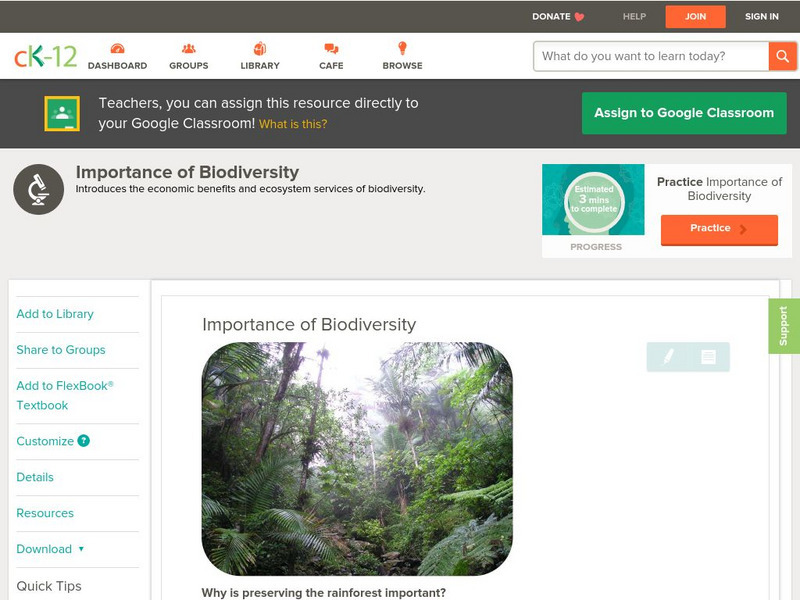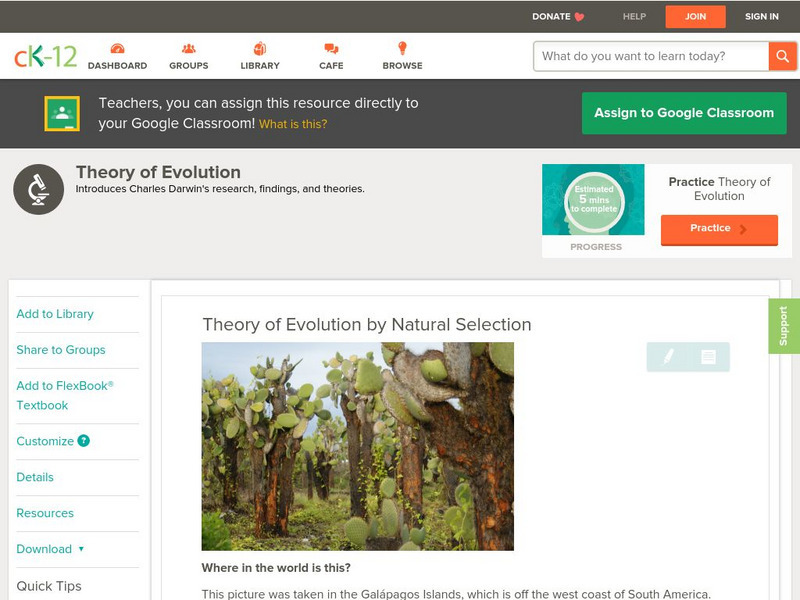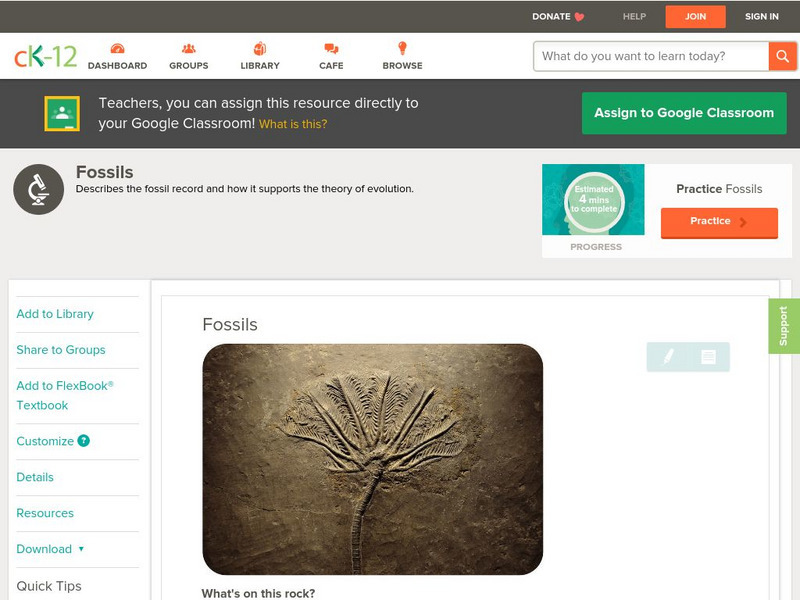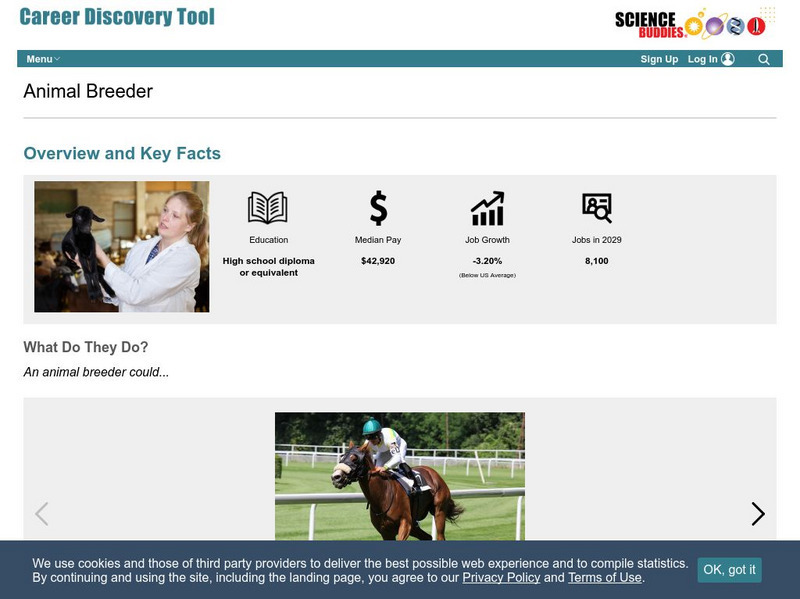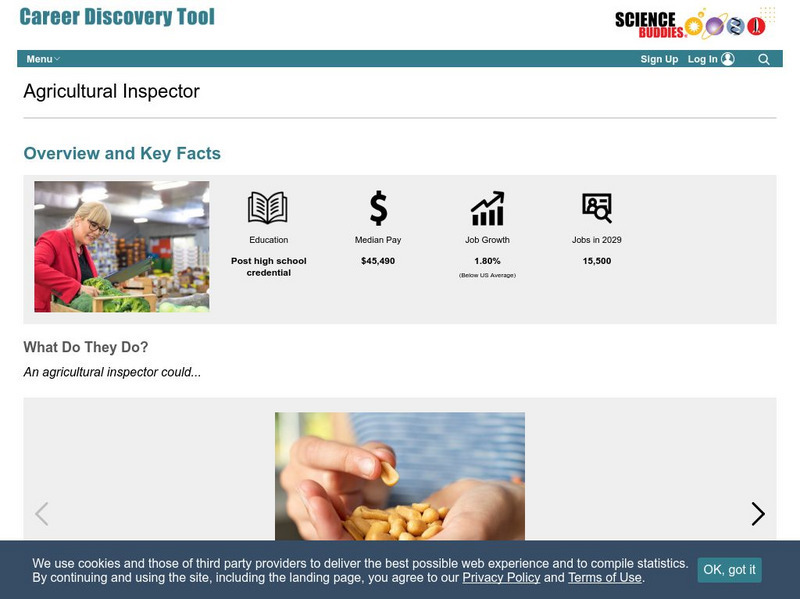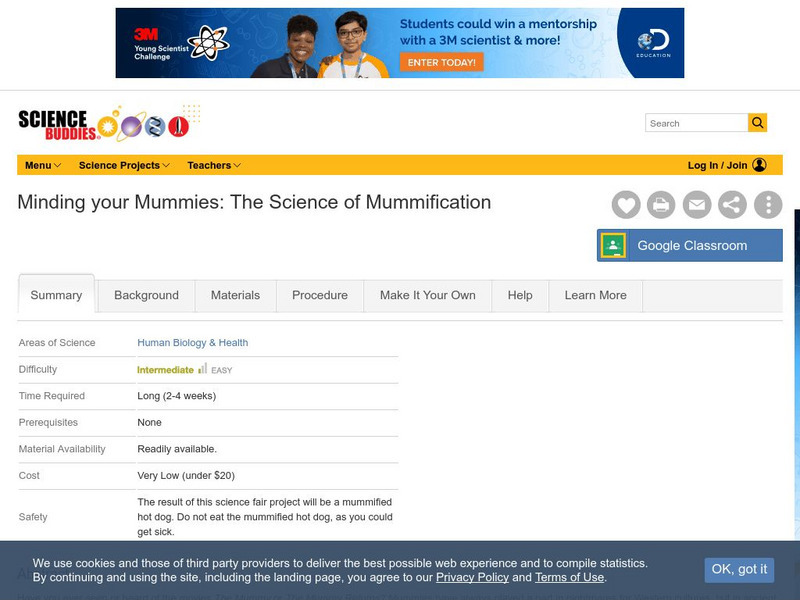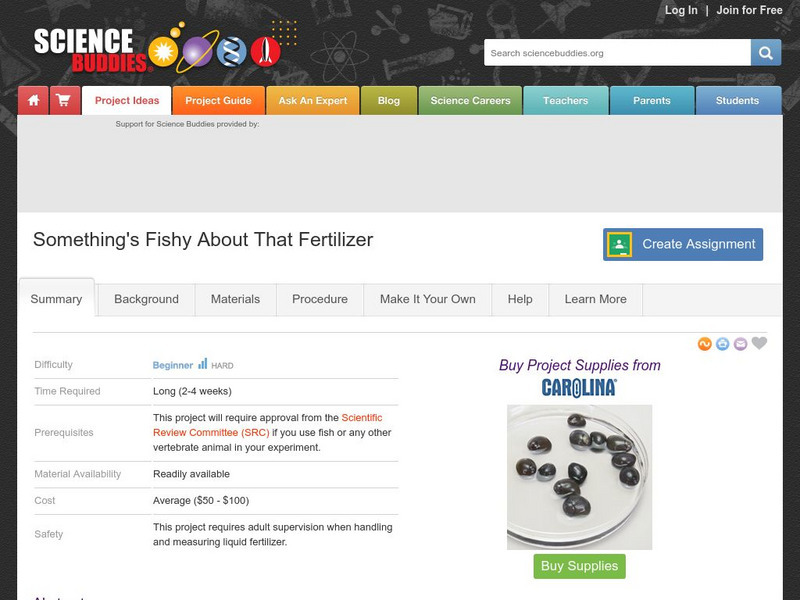CK-12 Foundation
Ck 12: Life Science for Middle School
This digital textbook covers core life science concepts and includes interactive features, real-world examples, and videos.
BSCS Science Learning
Bscs: Bscs Middle School Science
BSCS Middle School Science is a standards and inquiry-based program comprised of four units: Earth/Space Science, Life Science, Physical Science, and Science and Society. The curriculum is available free online for teachers.
Society for Science and the Public
Science News for Students: Ocean Animals Have Mushroomed in Size
Article reports on the increasing size of ocean animals over the millenia. Includes a list of key vocabulary.
CK-12 Foundation
Ck 12: Life Science: 2.1 Elements and Compounds
Learn how basic elements form molecules to support life.
CK-12 Foundation
Ck 12: Life Science: Plant Reproduction and Life Cycle
[Free Registration/Login may be required to access all resource tools.] The life cycle of a plant is very different from the life cycle of an animal. Humans are made entirely of diploid cells (cells with two sets of chromosomes). Our...
CK-12 Foundation
Ck 12: Life Science: Importance of Biodiversity
[Free Registration/Login may be required to access all resource tools.] Biodiversity is a measurement of the amount of variation of the species in a given area. More specifically, biodiversity can be defined as the variety of life and...
CK-12 Foundation
Ck 12: Life Science: Theory of Evolution by Natural Selection
[Free Registration/Login may be required to access all resource tools.] Do you ever wonder why some birds are big like ostriches and some birds are small like robins? Or why a lion has a mane while a leopard has spots? In the 19th...
CK-12 Foundation
Ck 12: Life Science: Fossils
[Free Registration/Login may be required to access all resource tools.] Fossils are the preserved remains of animals, plants, and other organisms from the distant past. By studying fossils, evidence for evolution is revealed....
Science Buddies
Science Buddies: Career Profile: Animal Breeder
Do you think a career in animal breeding might be interesting? This article in Science Buddies gives a clear assessment of what you might expect in that career. Find out what education you need, what the work environment is like, and...
Science Buddies
Science Buddies: Career Profile: Agricultural Inspector
We all expect that the food we eat is safe. Agricultural inspectors are the ones who check food processors, farms, and businesses to assure that they are following the governmental regulations that protect our food safety. This Science...
Science Buddies
Science Buddies: Minding Your Mummies: The Science of Mummification
Mummies have always played a part in nightmares for Western cultures, but in ancient Egypt, mummification was a serious religious ritual. They believed that preserving human remains was necessary so that the previous owner could enjoy...
Science Buddies
Science Buddies: Swimming in Acid: Understanding Ocean Acidification
The oceans are a precious natural resource, part of Earth's carbon cycle. But what happens if the oceans absorb too much carbon dioxide? Many scientists are concerned that the increased absorption of carbon dioxide is causing them to...
Science Buddies
Science Buddies: Something's Fishy About That Fertilizer
Did you know that when you use fertilizer in your garden, it can eventually reach a lake, stream, or pond? There are many different chemicals present in fertilizers. Learn how they affect the aquatic organisms in the ecosystem within...
Science Buddies
Science Buddies: Get Down and Dirty: How Does Soil Change With Depth?
What covers less than 10% of the Earth's surface, yet is a vital natural resource for terrestrial life? What filters ground water and supports most of our food production, not to mention the production of building materials and paper?...
Science Buddies
Science Buddies: I'm Trying to Breathe Here! Dissolved Oxygen vs. Temperature
To survive, we need oxygen in the air we breathe. Oxygen is also essential for most aquatic organisms, but there is much less oxygen available in water than in air. Learn how to measure dissolved oxygen and then see how oxygen...
Science Buddies
Science Buddies: Home Sweet Biome: How Do Plants Grow in Different Environments?
In this science fair project you will learn about biomes and how different climatic conditions affect plant growth. This can explain why some plants and animals are similar in different areas of the country, and in other parts they are not.
CK-12 Foundation
Ck 12: Life Science: 1.7 Safety in the Life Sciences
Review the safety precautions while performing scientific investigations.
CK-12 Foundation
Ck 12: Life Science: Photosynthesis
[Free Registration/Login may be required to access all resource tools.] Plants are producers, which means they are able to make their own food, as well as "food" for other organisms. Plants are also autotrophs - they collect energy from...
CK-12 Foundation
Ck 12: Life Science: 12.22 Carbon Cycle
Understand the role that the carbon cycle plays in the ecosystem.
CK-12 Foundation
Ck 12: Life Science: 12.26 Health Hazards of Air Pollution
See how air pollution affects human health.
CK-12 Foundation
Ck 12: Life Science: 11.62 Humoral Response
Learn about the human body's immune response to pathogens.
CK-12 Foundation
Ck 12: Life Science: 12.6 Human Population
Understand stages of human population growth.
CK-12 Foundation
Ck 12: Life Science: 12.5 Population Growth Limits
Discover how ecosystems respond to population growth limits.
Other popular searches
- 4th Grade Life Science
- Life Science Inquiry
- Life Science Vertebrates
- Life Science Experiments
- K 2 Life Science
- Life Science on Cells
- Life Science Lesson Plans
- Grade 4 Life Science
- Life Science Report Topic
- Australia Life Science
- The Life Science
- Life Science Lessons



